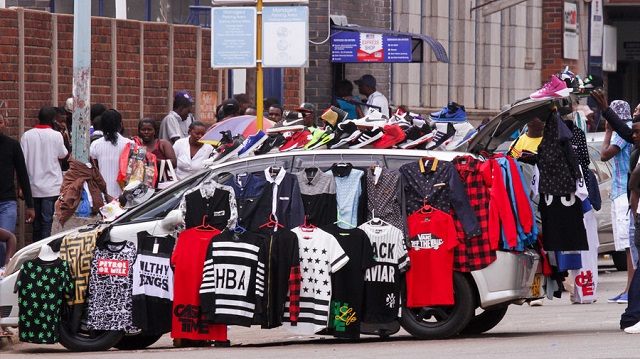Vending as a strategic business venture

Morris Mpala, MoB Capital Ltd
THE economic challenges that affected Zimbabwe in the past few years have given birth to vending, which has spiralled out of control and has caused anxiety and distress in management of cities and towns. Not everyone has to be a vendor because it creates a thin margins market and causes the collapse of the sector. Yet a few dedicated, well resourced and formalised vending is the future. An orderly, regularised, formalised and tax-paying informal sector is ideal. Those who are non-formalised have to be dealt with accordingly.
Government role
The Government has the responsibility to enact taxation laws that are modern, dynamic and in sync with the new vending model of sustainability in the vendors domain. This includes development of adequate supporting infrastructure. Local authorities should not charge exorbitant monthly levies as revenues from vending will include advertising. There is a need to put some thought into vending bays and its housing. A bit of research is required to create strategic vending bays that are profitable and not create white elephants.
Second hand clothes
Local authorities and Government should consider an alternative to this venture. Surely how does a local authority balance between local industry and the imported second hand goods? We have clothes with quality assurance issues and these should be availed to vendors (at competitive prices) for onward selling. Second or factory shops should not be there but all goods from these should be availed to vendors for onward sale on the (in) famous weekend markets. That way the local authority gets revenue, vendors get sales and local industry is encouraged and customers get affordable clothes as well because it’s about price in as far as the consumer is concerned.
Vendor association advocacy
There is a need to engage with policy makers for protective legislation. An advocacy association should encourage membership that in the long run they should use their subscription to finance their projects in a cost offer tube manner. Associations should encourage formalisation as an informal economy is not healthy at all. They should push for payment of taxes/levies so as to contribute to Treasury, which is good for the entire economy. Associations should say no to informal vendors and advocate for zero tolerance for unlicensed vendors that sell at undesignated places.
Financial engineering
The sector is ripe age ready for innovated funding to sustain the economy. There is a funding gap and it needs a collective approach of training, business coaching, mentorship and appropriate funding models to deal with vendors. The numbers are good and there is money to be made by funders and those funded as long as there is common ground for sustainability.
Local is lekker
To preserve jobs the sector is advised to sell local products in the grand scheme of things. Avoiding imports is encouraged to preserve the scarce foreign currency. Allow vendors to export products from local producers from horticulture to manufactured goods for them to generate the much needed exports.
We have organic foods and other products that vendors can take across borders informally. This is informal formalised trade. With good numbers you generate good income from proceeds that earn exports and they could with the same funds to import some goods.
ICT investments
The sector is ready for plastic money and other payment devices that discourage use of cash. It is safe, secure and helps the economy but reducing demand for cash. Embrace ICT and go paperless and ‘cashlite’.
Vending is an art
There is need to bring back that art to vending that complements the city clean-up campaign, that creates jobs, that beautifies the streets (City Hall flower/curios vendors) in an orderly, formalised manner without disturbing human traffic nor blocking existing establishments.
Vending sector is not for the faint hearted but needs bold steps, bold policing and bold guidelines devoid of emotions if we are to preserve the sector in the long run. Vending is here but we have to do in a win-win approach for all stakeholders to be happy.
Let’s also diversify and not clog the vending sector to preserve profits in the sector. Otherwise happy vending ladies and gentlemen and celebrate the sector for it has sustained households in the Zimbabwean economy.
IF YOU LIVE IN BULAWAYO PLEASE CONSERVE WATER
IF YOU LIVE IN ZIMBABWE PLEASE USE ELECTRICITY SPARINGLY SWITCH OFF SWITCHES (SOS)
IF YOU LIVE ON PLANET EARTH PLEASE PRESERVE THE ENVIRONMENT
*Morris Mpala is the managing director for Mob Capital Limited, a Bulawayo-headquartered micro-finance institution with footprint across the country.











Comments